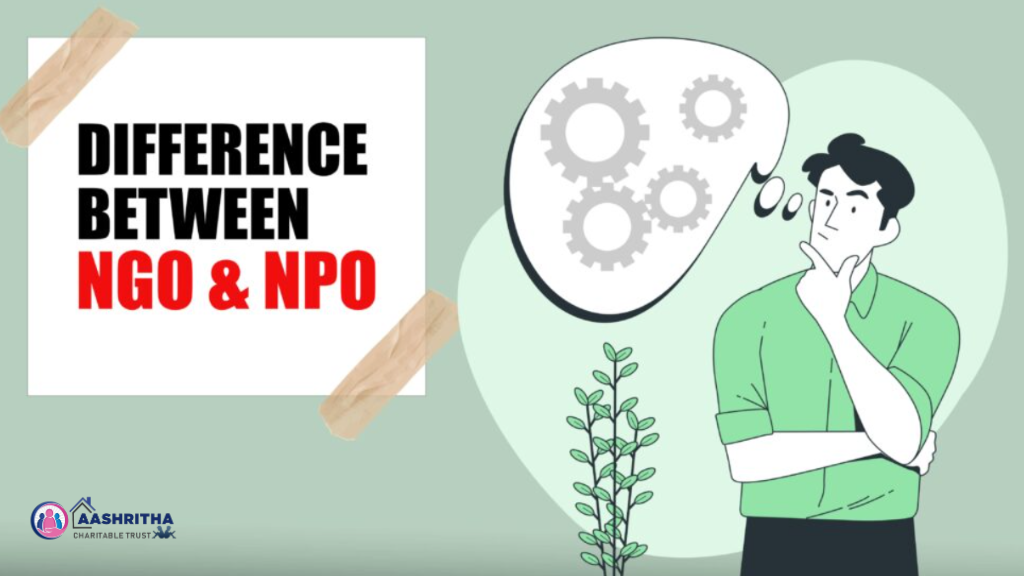In India and around the world, both Non-Governmental Organizations (NGOs) and Non-Profit Organizations (NPOs) play a vital role in driving social and community development. While these terms are often used interchangeably, there are clear differences between them in structure, objectives, and functioning.
What is an NGO?
An NGO is an independent organization that operates outside government control, usually working toward social, cultural, environmental, or community development goals.
- Functions of NGOs:
- Deliver grassroots-level services in healthcare, education, and rural development.
- Advocate for human rights and policy reforms.
- Create awareness on pressing issues like sanitation, women empowerment, and environmental sustainability.
- Examples:
- CRY (Child Rights and You): Focuses on child rights and education.
- Smile Foundation: Works on education, healthcare, and livelihood programs.
What is an NPO?
An NPO is an organization that does not distribute its surplus revenues as profit but instead reinvests them into achieving its mission. NPOs can include NGOs, charitable trusts, societies, and even non-profit companies registered under Section 8 of the Indian Companies Act.
- Functions of NPOs:
- Manage resources for community welfare projects.
- Conduct charitable activities such as running schools, hospitals, or orphanages.
- Provide long-term sustainable support in areas like skill development and social welfare.
- Examples:
- Teach For India (Section 8 Company): Works to eliminate educational inequality.
- Azim Premji Foundation: Focuses on large-scale educational improvement.
Key Differences Between NGO and NPO
| Aspect | NGO | NPO |
| Objective | Social, cultural, environmental, or community development | Broad category including NGOs, trusts, societies, or companies |
| Registration | Trusts, Societies, or Section 8 Companies | Primarily Section 8 Companies, Charitable Trusts |
| Funding | Donations, CSR funds, government schemes | Donations, membership fees, and grants |
| Examples | CRY, Smile Foundation | Teach For India, Azim Premji Foundation |
Why They Matter
Both NGOs and NPOs are essential pillars of social progress, ensuring that vulnerable communities get access to education, healthcare, nutrition, and sustainable livelihoods. They bridge the gap between government policies and on-ground implementation, ensuring inclusive development.
Partnering for Impact
To create meaningful change, individuals and corporates can collaborate with Aashritha Charitable Trust—an NGO committed to healthcare, education, and community empowerment in underserved areas of India. Such partnerships ensure that resources directly impact those who need them the most.





